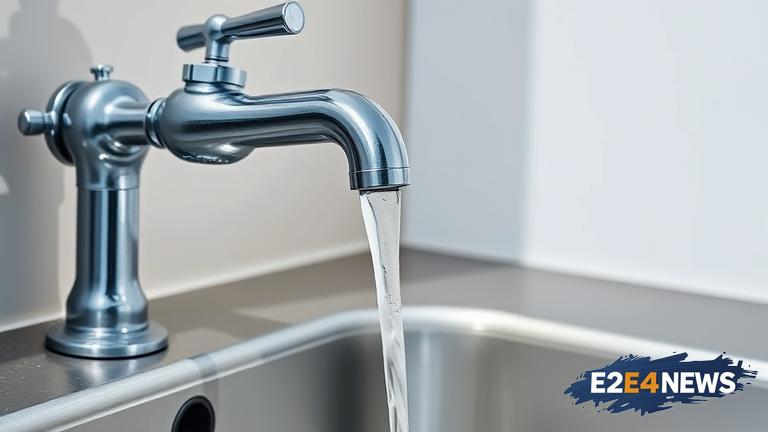The city of Tauranga, located on the northeastern coast of New Zealand’s North Island, has made a significant move in the realm of water supply. The Tauranga City Council has announced the introduction of a non-fluoridated tap water option for its residents, marking a departure from the traditional fluoridated water supply that has been in place for decades. This decision comes after extensive consultation with the community, with many residents expressing concerns about the potential health effects of fluoridated water. The new non-fluoridated tap water option will be available to all residents, providing them with a choice in the type of water they consume. The city council has stated that the non-fluoridated water will be sourced from the same underground aquifers as the fluoridated water, but will undergo a different treatment process to remove any naturally occurring fluoride. The introduction of non-fluoridated tap water is seen as a major victory for the anti-fluoride lobby, which has been advocating for the removal of fluoride from the water supply for many years. However, not everyone is pleased with the decision, with some health experts warning that the removal of fluoride from the water supply could lead to an increase in tooth decay and other oral health problems. Despite these concerns, the city council has stated that it is committed to providing its residents with a choice in the type of water they consume, and will continue to monitor the situation to ensure that the non-fluoridated water option is safe and effective. The introduction of non-fluoridated tap water in Tauranga is part of a growing trend in New Zealand, with several other cities and towns also considering the removal of fluoride from their water supplies. The debate over fluoridated water has been ongoing for many years, with some arguing that it is a necessary measure to prevent tooth decay, while others claim that it is a form of mass medication that can have negative health effects. The World Health Organization (WHO) has stated that fluoride is a essential nutrient for oral health, but excessive consumption can lead to a range of health problems, including dental fluorosis and skeletal fluorosis. In New Zealand, the Ministry of Health has recommended that water supplies contain between 0.7 and 1.0 milligrams of fluoride per liter, in order to prevent tooth decay and promote oral health. However, some critics argue that this level of fluoride is too high, and can lead to a range of negative health effects. The introduction of non-fluoridated tap water in Tauranga is likely to reignite the debate over fluoridated water, with some arguing that it is a necessary measure to protect public health, while others claim that it is a form of government overreach. As the city council continues to monitor the situation, it is likely that other cities and towns in New Zealand will be watching with interest, as they consider their own water supply options. The decision to introduce non-fluoridated tap water in Tauranga is a significant one, and is likely to have far-reaching implications for the city and its residents. With the city council committed to providing its residents with a choice in the type of water they consume, it will be interesting to see how the situation develops in the coming months and years. The introduction of non-fluoridated tap water is a major development in the world of water supply, and is likely to be closely watched by health experts, policymakers, and residents alike. As the debate over fluoridated water continues, it is clear that the introduction of non-fluoridated tap water in Tauranga is a significant step forward, providing residents with a choice in the type of water they consume. The city council’s decision to introduce non-fluoridated tap water is a testament to the power of community advocacy, and demonstrates the importance of listening to the concerns of residents. The introduction of non-fluoridated tap water in Tauranga is a major victory for those who have been advocating for the removal of fluoride from the water supply, and is likely to inspire similar movements in other cities and towns. As the situation continues to unfold, it will be interesting to see how the city council responds to the needs and concerns of its residents, and how the introduction of non-fluoridated tap water affects the health and wellbeing of the community.
